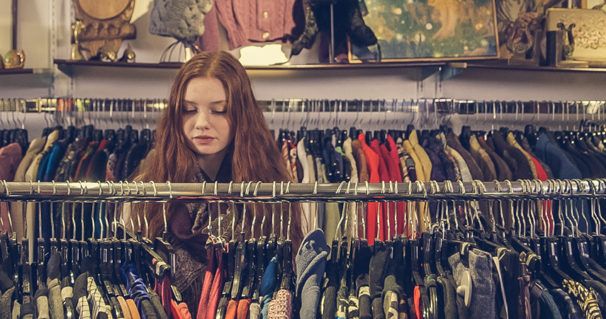A short guide to ethical shopping
In this post get advice on how to shop more ethically, and discover a course that will teach you the ins and outs of ethical shopping.

Over the decades, the fashion industry (said to be valued at $3 trillion globally) has repeatedly been criticised for a careless approach to ethics and the environment. Put simply, when you buy cheap clothes, someone else pays extra. That someone? Often the producer, or the environment. Or both.
And yet, when shopping, it can be hard to tell, at a glance, if the clothes you’re considering buying are ethically sound or not. We’re here to help with three top tips, and a course, to help you ensure your shopping habits are good for people and planet.
- Don’t buy things you don’t need
The first thing is to consider is if you really want or need those shoes in the first place. A lot of the things we buy only go to waste, staying in closets until they’re eventually thrown away. Debbie Moorhouse, co-founder of the International Society For Sustainable Fashion advises:
“More than 100 billion items of clothing are produced each year. The average person buys 60% more than 15 years ago but keeps their purchases for half as long. People can reduce their consumption footprint by rejecting fast fashion, and consciously taking the decision to choose quality over quantity.”
- Look for natural fibres
Not all fibres are created equal, according to Rob Williams, director of clothing manufacturer Hawthorn:
“One of the best ways to ensure you’re purchasing sustainable clothing is to only purchase clothing with natural fibres – specifically those marked as Organic. Regular cotton can be produced using pesticides and other environmentally damaging substances, whilst organic cotton is grown without extra chemicals”.
- Research the brand
Besma Whayeb, blogger and founder of Ethical Influencers wants us to do our research first.
“I recommend reading ethical bloggers’ reviews to discover new designers, makers, and initiatives. By shopping with the right brands, I know I can trust their process and fair treatment of staff.”
Try checking Fashion Revolution’s Fashion Transparency Index or Rank a Brand before you buy, both are very detailed, covering many of the major brands. If you still can’t find out: ask. Companies that are genuinely sustainable and Fairtrade will be happy to answer.
Though this list is short, these three steps are a good way to start improving your shopping habits. Remember, every time you buy something you’re ‘voting with your wallet’ – your vote can go towards cheap, sweatshop produced clothing that harms people and the environment, or towards ethical and sustainable clothing that doesn’t.
If you want to learn more about making sure you’re shopping ethically, check out the course ‘Who Made My Clothes?’. Created with Fashion Revolution and the University of Exeter, it will teach you how to tell where your clothes came from, and who made them.
You’ll also learn how to use your knowledge to influence the industry for the better.




